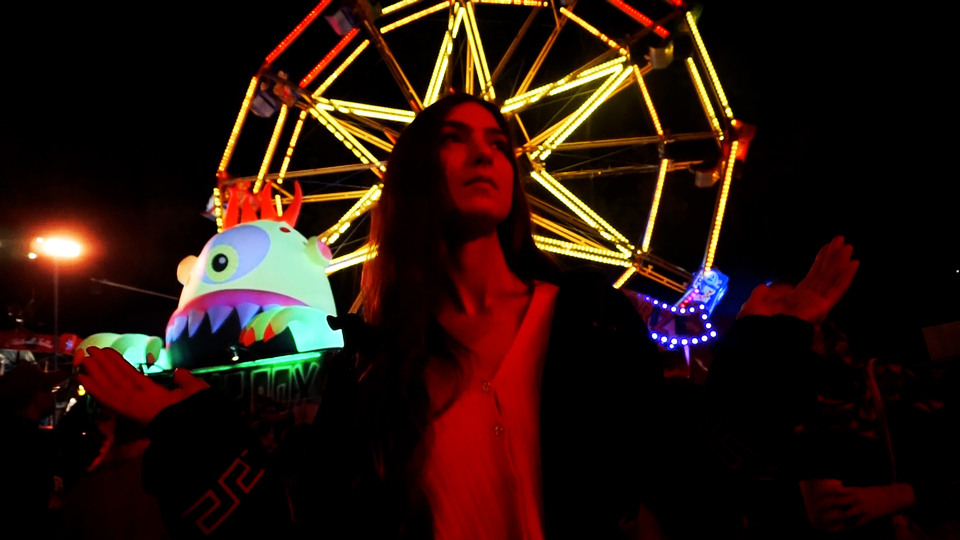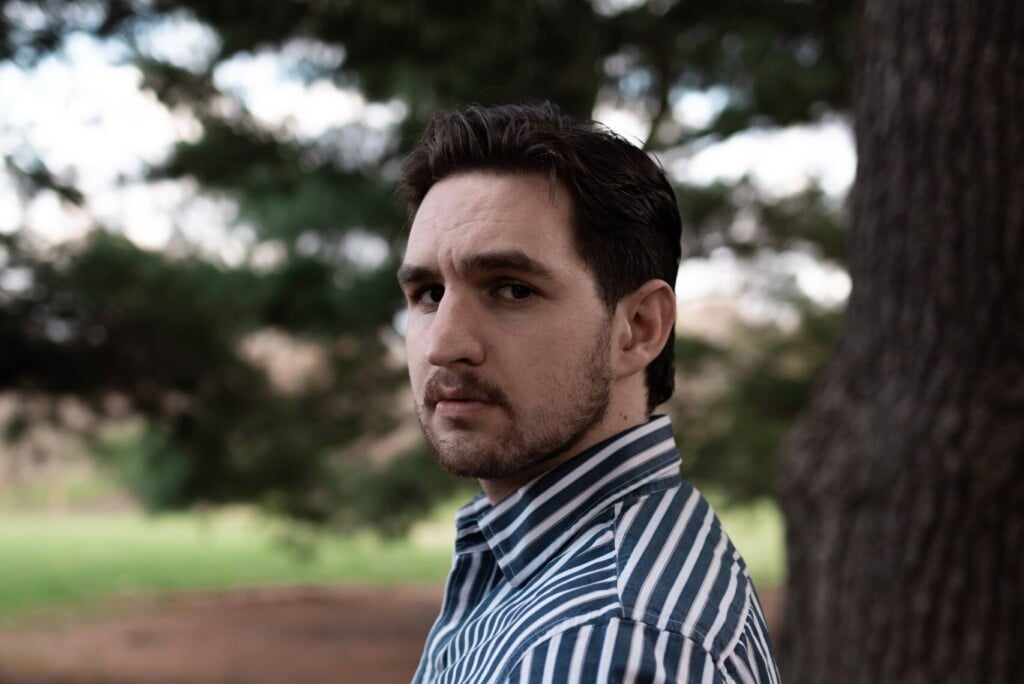No Skips: Weyes Blood weaves myth, agape, and longing throughout her latest album, And in the Darkness, Hearts Aglow
In our series No Skips, we sit down with an artist or band and go track by track through their latest release. For some of us, the banter in a concert where a song gets explained is our favorite thing in the world, and we’d just like to keep living in that. Every song has a story, and these are those stories, in the order you’ll encounter them on the record.
Natalie Mering makes gorgeous psychedelic-folk rock under the name Weyes Blood. In her fourth album, released in 2019, Titanic Rising, Mering analyzes the status quo through a sentimental lens and faces hard truths about romance, algorithms, and future civilization. Now on an international tour with her fifth album, And in the Darkness, Hearts Aglow, Mering pauses ahead of her show at The Truman on Friday, August 25, to reflect on universal truths, polarized love, and ancient myth with contemporary effect.
The Pitch: With the different ways people access music now, it’s rare to listen to a whole song, let alone an album, from start to finish. In “It’s Not Just Me, It’s Everybody,” it feels like you’re talking about a collective broken heart.
Natalie Mering: Even though a lot of the songs on the album deal with intimacy, it’s like a subterranean river of what’s going on internally. I think that’s something everybody was kind of universally going through and still going through. You know, like, I just think there’s been a bit of a reckoning in terms of waking up to our own mortality and the limitations of the culture we’ve set up for ourselves in the future.
Are you influenced at all by Phillip Glass’s Work?
Oh, totally. Yeah.
“Children of the Empire” has themes of a dystopian society and loneliness. Are you speaking to the next generation—these little Alphas?
What are Alphas?
Apparently, Generation Alpha is the next group of kids. Like, they’ve started the Greek alphabet over again for a new generation. Isn’t that bizarre?
Yeah. That is weird. I mean, I don’t really have any connection with that generation—though I try to be kind of temporal about age, so in some ways, it’s addressing everybody no matter which age. I would assume that they need the same kind of encouragement that millennials do. I don’t know.
During WWII, the word “grapevine” was code for gossip. Are you using it in that context?
No, it’s referencing the freeway that runs from Southern California to Northern California.
Are you referencing romance lost or possibly indifference in love?
I don’t know if indifference is the right word. Maybe just how things can, you know, shift so quickly. You can go from being really close to being strangers really fast.
During “God Turn Me Into a Flower,” are you struggling to recognize yourself on the other side of the mirror? Is there mythology that you want to unravel?
No, the song is about the myth of Narcissus and how the crux of the myth is misinterpreted. People think that he was obsessed with his own reflection and that he became enamored with himself. It was actually that he just didn’t recognize himself. And so he thought it was something else, and that became his obsession.
The album shifts, and there’s this beautiful, nostalgic surf rock sound with the feeling of a love letter in “Hearts a Glow.”
Yeah. I mean, it is like an old-school kind of love letter. I think it’s kind of, like, about how love is so inherently nostalgic, but if it’s the right, you know, set of circumstances. It just happened, you know, but I think there’s kind of this yearning for a return to something.
Would you call “And in the Darkness…” an interlude?
I think. Yeah, just to kind of, you know, break it apart. It has a question-mark quality to it.
There’s a gorgeous new wave influence and an ’80s synth in “Twin Flame.” Is it more of a love story with yourself, or is it about the other?
Yeah, it’s about the other. It’s about a bit of a toxic side.
Does it feel like a transition or shift in the album for you after “In Holy Flux?”
Yeah, I feel like these things are kind of to be experienced in the time and space that they’re made. So it’s like trying to explain the instrumental parts, I think, is kind of counterintuitive because if the reason there are no words on it. It’s like an unspoken thing, you know?
“The Worst Is Done” is so dancey.
Yeah. I kind of wanted it to be totally different in terms of like, the lyrics and the beat because I think in some ways, like, when the world started back up, we just kind of returned—trying to go full speed—and it felt a little different.
“A Given Thing”—I wanted to ask about your upbringing in the Pentecostal church, particularly Baptism, which enables the Christian with a spirit-filled and empowered life. And maybe this is inaccurate, but there’s a very divine healing happening in all of your music, especially in a given thing.
In some ways, being in love takes a certain level of maturity because it’s like you’re tapping into something that’s a bit beyond yourself. When you’re kind of just loving from an egotistical perspective, it’s like getting lost in some of the lyrics. “Sometimes we confuse the dream for one another,” which is this yearning to be closer to infinity and how it’s easy to kind of, like, forget that, you know?
I always try to think of a baseline love for everybody, and that’s a very Christian concept for sure. That baseline of universal love, that’s unconditional and not necessarily based on your mood or your timing, or so it’s like that love exists. But then, in our culture and in our lives, we experience these very brief, fleeting moments of what we think is true love, and it does have a time limit. It isn’t this eternal thing, and it’s trying to reconcile these two incompatible forces that are also inextricably linked. And I think the chords and the way that I tried to make it is like easing the tension between those two worlds.
You have a pretty loaded schedule before you head East. Is there anything you’re looking forward to before visiting the Midwest?
I’m opening up for the Strokes. I am excited about that. And playing in Madison Square Garden, which I’ve never done.
When you’re in Kansas City, if you get a chance, we’ve got some pretty good thrifting, which I hear you enjoy.
Ok, Awesome. I love that.
Catch Weyes Blood on the “In Holy Flux Tour: Unleashed” with support from Nick Hakim at The Truman on Friday, August 25. Tickets available here.






